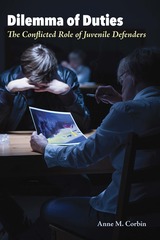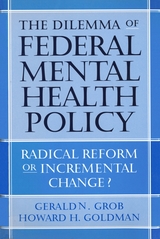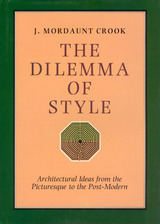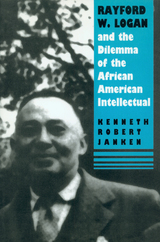8 books about Dilemma

The Black Aesthetic Unbound
Theorizing the Dilemma of Eighteenth-Century African American Literature
April C.E. Langley
The Ohio State University Press
During the era of the slave trade, more than 12 million Africans were brought as slaves to the Americas. Their memories, ideas, beliefs, and practices would forever reshape its history and cultures. April C. E. Langley’s The Black Aesthetic Unbound exposes the dilemma of the literal, metaphorical, and rhetorical question, "What is African in African American literature?" Confronting the undeniable imprints of West African culture and consciousness in early black writing such as Olaudah Equiano’s The Interesting Narrative or Phillis Wheatley’s poetry, the author conceives eighteenth-century Black Experience to be literally and figuratively encompassing and inextricably linked to Africa, Europe, and America.
Consequently, this book has three aims: to locate the eighteenth century as the genesis of the cultural and historical movements which mark twentieth-century black aestheticism—known as the Black Aesthetic; to analyze problematic associations of African identity as manifested in an essentialized Afro-America; and to study the relationship between specific West African modes of thought and expression and the emergence of a black aesthetic in eighteenth-century North America. By exploring how Senegalese, Igbo, and other West African traditions provide striking new lenses for reading poetry and prose by six significant writers, Langley offers a fresh perspective on this important era in our literary history. Ultimately, the author confronts the difficult dilemma of how to use diasporic, syncretic, and vernacular theories of Black culture to think through the massive cultural transformations wrought by the Middle Passage.
Consequently, this book has three aims: to locate the eighteenth century as the genesis of the cultural and historical movements which mark twentieth-century black aestheticism—known as the Black Aesthetic; to analyze problematic associations of African identity as manifested in an essentialized Afro-America; and to study the relationship between specific West African modes of thought and expression and the emergence of a black aesthetic in eighteenth-century North America. By exploring how Senegalese, Igbo, and other West African traditions provide striking new lenses for reading poetry and prose by six significant writers, Langley offers a fresh perspective on this important era in our literary history. Ultimately, the author confronts the difficult dilemma of how to use diasporic, syncretic, and vernacular theories of Black culture to think through the massive cultural transformations wrought by the Middle Passage.
[more]

The Dilemma of Compliance
Political Parties and Post-Election Disputes
Svitlana Chernykh
University of Michigan Press, 2024
Over the past twenty years, the causes and consequences of post-election disputes have become one of the most compelling topics of research in political science. Between 2012 and 2022, political parties challenged the results of more than 25 percent of elections. When democratic transitions are dependent on the willingness of participants to accept defeat, political parties can undermine election-based democracy by rejecting the outcome. As the world enters the fourth decade since the start of the third wave of democratization, the question of whether election losers will comply or reject election outcomes is more and more pressing. The Dilemma of Compliance analyzes this phenomenon at the level of political parties, raising three important questions: Why do some political parties refuse to comply with election results? What determines the strategies they use to contest the outcomes? What consequences do post-election disputes have for the political parties that initiate them?
To answer these questions, this book draws on an original dataset of post-election responses encompassing over 300 political parties, which participated in 270 elections held in twenty-two countries of Eastern Europe and the former Soviet Union over a period of more than two decades. In doing so, it offers a new theoretical framework for studying electoral compliance in comparative perspective and advances research on democratic transition, democracy promotion, post-election protests, and party politics.
To answer these questions, this book draws on an original dataset of post-election responses encompassing over 300 political parties, which participated in 270 elections held in twenty-two countries of Eastern Europe and the former Soviet Union over a period of more than two decades. In doing so, it offers a new theoretical framework for studying electoral compliance in comparative perspective and advances research on democratic transition, democracy promotion, post-election protests, and party politics.
[more]

Dilemma of Duties
The Conflicted Role of Juvenile Defenders
Anne M. Corbin
Southern Illinois University Press, 2018
The role of a juvenile defender is riddled with conflict, and clients are uniquely challenging because of their lack of life experience and their underdeveloped decision-making abilities. In Dilemma of Duties, Anne M. Corbin examines the distinct function of defense counsel in juvenile courts, demonstrating the commonplace presence of role conflict and confusion, even among defenders in jurisdictions that clearly define their role. This study focuses on juvenile defense attorneys in North Carolina, where it is mandated that counselors advocate for their client’s wishes, even if they do not agree it is in the client’s best interest.
In Dilemma of Duties, Corbin outlines patterns of role conflict that defenders experience, details its impact on counselors and clients in the juvenile justice system, and addresses the powerful influence of the juvenile court culture and the lack of resources for defenders. Tasked with guiding these children, counselors frequently must contend with and manage their clients’ general distrust of adults as they attempt to serve as their voices to the court.
Understanding how juvenile defenders define their role and experience role conflict provides valuable insights into our juvenile justice system, especially its role in upholding due process rights. Such knowledge points to the importance of the training and practices of juvenile court functionaries and the efficacy, credibility, and legitimacy of the juvenile justice system itself.
In Dilemma of Duties, Corbin outlines patterns of role conflict that defenders experience, details its impact on counselors and clients in the juvenile justice system, and addresses the powerful influence of the juvenile court culture and the lack of resources for defenders. Tasked with guiding these children, counselors frequently must contend with and manage their clients’ general distrust of adults as they attempt to serve as their voices to the court.
Understanding how juvenile defenders define their role and experience role conflict provides valuable insights into our juvenile justice system, especially its role in upholding due process rights. Such knowledge points to the importance of the training and practices of juvenile court functionaries and the efficacy, credibility, and legitimacy of the juvenile justice system itself.
[more]

The Dilemma of Federal Mental Health Policy
Radical Reform or Incremental Change?
Grob, Gerald N
Rutgers University Press, 2006
Severe and persistent mental illnesses are among the most pressing health and social problems in contemporary America. Recent estimates suggest that more than three million people in the U.S. have disabling mental disorders. The direct and indirect costs of their care exceed 180 billion dollars nationwide each year. Effective treatments and services exist, but many such individuals do not have access to these services because of limitations in mental health and social policies.
For nearly two centuries Americans have grappled with the question of how to serve individuals with severe disorders. During the second half of the twentieth century, mental health policy advocates reacted against institutional care, claiming that community care and treatment would improve the lives of people with mental disorders. Once the exclusive province of state governments, the federal government moved into this policy arena after World War II. Policies ranged from those focused on mental disorders, to those that focused more broadly on health and social welfare.
In this book, Gerald N. Grob and Howard H. Goldman trace how an ever-changing coalition of mental health experts, patients' rights activists, and politicians envisioned this community-based system of psychiatric services. The authors show how policies shifted emphasis from radical reform to incremental change. Many have benefited from this shift, but many are left without the care they require.
For nearly two centuries Americans have grappled with the question of how to serve individuals with severe disorders. During the second half of the twentieth century, mental health policy advocates reacted against institutional care, claiming that community care and treatment would improve the lives of people with mental disorders. Once the exclusive province of state governments, the federal government moved into this policy arena after World War II. Policies ranged from those focused on mental disorders, to those that focused more broadly on health and social welfare.
In this book, Gerald N. Grob and Howard H. Goldman trace how an ever-changing coalition of mental health experts, patients' rights activists, and politicians envisioned this community-based system of psychiatric services. The authors show how policies shifted emphasis from radical reform to incremental change. Many have benefited from this shift, but many are left without the care they require.
[more]

The Dilemma of Mexico's Development
The Roles of the Private and Public Sectors
Raymond Vernon
Harvard University Press

The Dilemma of Style
Architectural Ideas from the Picturesque to the Postmodern
J. Mordaunt Crook
University of Chicago Press, 1987
Is architecture in a state of crisis? Or are the critics simply in a state of confusion? Either way, the problems of architecture today are rooted in the history of architectural ideas. Those ideas—from the Picturesque to the Modern Movement; from the Neo-Classicism and the Gothic Revival to New Brutalism and Post-Modernism—form the basis of this original and highly readable book. Ranging widely over English architecture during the last two hundred years—Georgian, Victorian, Edwardian, Modern—The Dilemma of Style explores the way in which generations of architects and theorists have searched for a key to the conundrum of style. Richly illustrated and densely argued, with scores of quotations and hundreds of references, this is not another history of English architecture: it is almost an encyclopaedia of architectural ideas.
This challenging book confronts one of the central problems of architectural theory: the nature—and necessity—of style.
This challenging book confronts one of the central problems of architectural theory: the nature—and necessity—of style.
[more]

Rayford W. Logan and the Dilemma of the African American Intellectual
Kenneth Robert Janken
University of Massachusetts Press, 1997
This biography of the African-American activist and scholar, Rayford W. Logan, draws from his own work, letters, diaries and autobiography to create a portrait of a lesser-known member of the black scholarly elite in the mid-20th century.
[more]

Sexual Assault
The Dilemma of Disclosure, The Question of Conviction
Rita F. Gunn
University of Manitoba Press, 1988
READERS
Browse our collection.
PUBLISHERS
See BiblioVault's publisher services.
STUDENT SERVICES
Files for college accessibility offices.
UChicago Accessibility Resources
home | accessibility | search | about | contact us
BiblioVault ® 2001 - 2024
The University of Chicago Press









